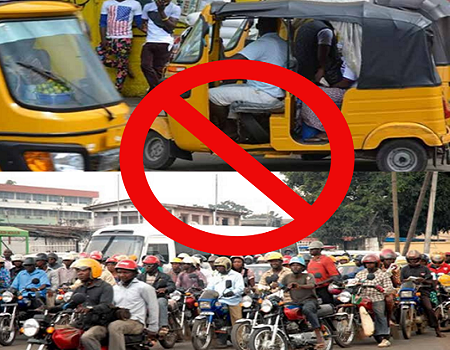The Lagos State Government recently banned motorcycles and tricycles (M&Ts) from operating in certain areas of the state out of ‘public safety,’ primarily as both means of transportation are highly linked to road accidents. Although the claim is partially true, road accidents linked to M&Ts has significantly reduced with the appearance transportation network companies (TNCs—commonly referred to as ride-hailing companies) like Gokada, Max.ng, and ORide, in the last five years.
Not long ago, the Lagos General Hospital reported that there were over 10,000 road accidents linked to M&Ts between 2016 and 2019 in the state alone. Of course, these figures should be of concern to any government. However, many among the reported cases, and beyond, are also related to other vehicles like oil-carrying tanker-trucks and heavy-duty freight-trucks.
Noting these examples is, however, significant considering only two years ago, the state introduced a law that prohibited the operation of M&Ts (which mostly have 200 Cubic Centimeter engines, or less) while reserving operation permissions for vehicles with larger engines even though these other vehicles are linked to road accidents, too.
The same law also restricted M&T operators to carry one passenger at a time with both rider and passager needing to be properly suited. The operators that were actually targeted in this law were the unregulated commercial riders, who often flout traffic rules and ride recklessly. However, anyone affected by the new regulation, including the TNCs, would be shocked by the absurdity of this regulation. But enacting such laws could be doing the new TNCs no good.
ALSO READ: Commend us if we do good, tell us if we do anything contrary, Bello charges journalists
When the TNCs started out, the state demanded that each pays an annual licensing fee of ₦25 million ($70,000) per 1,000 motorcycles, then each TNC would later pay ₦30,000 ($83) per motorcycle after it had obtained licenses for up to 1,000 motorcycles. The state also permitted the National Union of Road Transport Workers and the Road Transport Employers’ Association of Nigeria to charge the TNCs an additional ₦500 Naira ($1.38) per bike daily. How could startups survive in this space of multiple royalties?
As if these were not enough, the state has restricted the TNCs from having their motorcycles use highways and bridges. The question then would be what roads are there to use for efficient transportation besides these two?
The arrival of the TNCs is in many ways responsible for some of the observable changes in how the M&Ts currently operate: they have put more new vehicles on the roads; they enforce proper travel gear etiquette, i.e., enforcing the helmet policy, etc, and they currently employ thousands of Nigerians, who otherwise, would not be employed. The amount of investment these companies are bringing into the state’s economy is huge.
Max.Ng has invested about $10 million in the industry. Close competitor, Gokada equally made an impressive $5 million investment, and ORide tops with $40 million. One cannot expect bigger investments from these startups knowing well enough the number of state regulations that could easily throw them out of business is soaring.
These are the true saviors of the so-called ‘Lagos Megacity’ plan. Especially as alternative means of transportation like the intra-city rail and water transportation systems respectively remain unaccomplished and inefficient. Equally, the Bus Rapid Transit still has to beat the unforgiving traffic log to be more efficient than traditional ‘Danfo’ alternatives. This problematic transportation system and the inefficiency of the Lagos State Government in improving the system make the TNCs a necessary alternative.
If Lagos State, nonetheless, continues to treat the TNCs with hostile regulations, investors in other emerging industries would be discouraged to put money in the state’s economy.
This is because a critical factor as regards to how much the private sector invests in an economy has to do with the ‘environmental risk,’ which is one reason some companies in Nigeria are valued less than others. A closer look at how Lagos is treating its business ‘environment’ reveals just how much problem it is creating for investors like the TNCs.
Regulations must not be extreme and neither must it be insensible. In this case, it is both. The Lagos State government must review its laws as it relates to the operation of the TNCs and other businesses. If not, interest from potential investors would remain distant.
• Olumayowa Okediran, is the Managing Director of African Liberty and Author of Navigate: A Prospection of Nigeria’s future till 2030.








